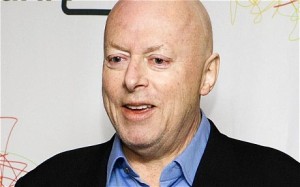Christopher Hitchens dies at 62
British-American author and essayist Christopher Hitchens died Thursday from complications of esophageal cancer. He was 62.
Hitchens was known for his wry monthly columns for Vanity Fair magazine.
“There will never be another like Christopher. A man of ferocious intellect, who was as vibrant on the page as he was at the bar” – said Vanity Fair editor Graydon Carter. “Those who read him felt they knew him, and those who knew him were profoundly fortunate souls.”
Hitchens was born in Portsmouth, England, in 1949 and graduated from Oxford University in 1970.
He landed a job with Vanity Fair as a contributing editor in November 1992.
“Christopher was a master of the stunning line and the biting quip, and he had few equals in the sphere of commentary, let alone social life” – a Vanity Fair statement said.
Hitchens also wrote for other publications like New Statesman, the London Evening Standard, London’s Daily Express, The Nation, Harper’s, The Spectator, The Times Literary Supplement, New York Newsday, The Atlantic, and Slate.
CNN’s Piers Morgan tweeted about Hitchens from his official Twitter page Thursday night.
“RIP Christopher Hitchens – greatest literary provocateur of my lifetime. Huge talent, huge loss” – Morgan wrote.
Christopher Hitchens, the author, essayist and polemicist is dead. He died after a long battle with cancer. He was 62.
The author of the provocative best-seller God is Not Great, and an engaging, prolific and public intellectual who enjoyed his drink and cigarettes, announced in June last year he was being treated for cancer of the oesophagus.
Eloquent and intemperate, bawdy and urbane, he was an acknowledged contrarian and contradiction, half-Christian, half-Jewish and fully non-believing; a native of England who settled in America; a former Trotskyite who backed the Iraq war and supported George W. Bush.
But his passions remained constant and the enemies of his youth, from Henry Kissinger to Mother Teresa, remained hated. “To be vindicated in my own lifetime” – was his mantra, and to that end he strived to get his point across by all means possible.
A short time ago I spoke to ABC broadcaster and journalist, Tony Jones, who grew to know him in his last few years.
Tony Jones: Well Matt, like many people I’ve actually just heard the news. And it’s been put out by Twitter by Vanity Fair. And I’m shocked actually. I’m devastated would be a better way of putting it.
I mean we’re talking about one of the great minds of our time. One of the, probably, almost certainly I would say the greatest public intellectual of our era, and one of the most interesting, funny, clever and witty, brilliant writers of my lifetime. And one of the – and I’m privileged to say that I’ve met Christopher a number of times. He’s probably the person that I most admire in the world as well.
Matt Peacock: Now politically he wasn’t easily categorizable was he? I mean he opposed the Vietnam War and for a long time sort of sat with the left, but supported the Iraq war.
The writer, polemicist and devout atheist Christopher Hitchens was known for his confrontational style of debate. Here we list some of his more controversial outbursts.
“(Mother Teresa) was not a friend of the poor. She was a friend of poverty. She said that suffering was a gift from God. She spent her life opposing the only known cure for poverty, which is the empowerment of women and the emancipation of them from a livestock version of compulsory reproduction.”
“(George W. Bush) is lucky to be governor of Texas. He is unusually incurious, abnormally unintelligent, amazingly inarticulate, fantastically uncultured, extraordinarily uneducated, and apparently quite proud of all these things.”
“The noble title of ‘dissident’ must be earned rather than claimed; it connotes sacrifice and risk rather than mere disagreement.”
“What I used to say to people, when I was much more engage myself, is that you can’t be apolitical. It will come and get you. It’s not that you shouldn’t be neutral. It’s that you won’t be able to stay neutral.”
“Every day, the New York Times carries a motto in a box on its front page. ‘All the News That’s Fit to Print’ – it says. It’s been saying it for decades, day in and day out. I imagine most readers of the canonical sheet have long ceased to notice this bannered and flaunted symbol of its mental furniture. I myself check every day to make sure that the bright, smug, pompous, idiotic claim is still there. Then I check to make sure that it still irritates me. If I can still exclaim, under my breath, why do they insult me and what do they take me for and what the hell is it supposed to mean unless it’s as obviously complacent and conceited and censorious as it seems to be, then at least I know I still have a pulse. You may wish to choose a more rigorous mental workout but I credit this daily infusion of annoyance with extending my lifespan.”
